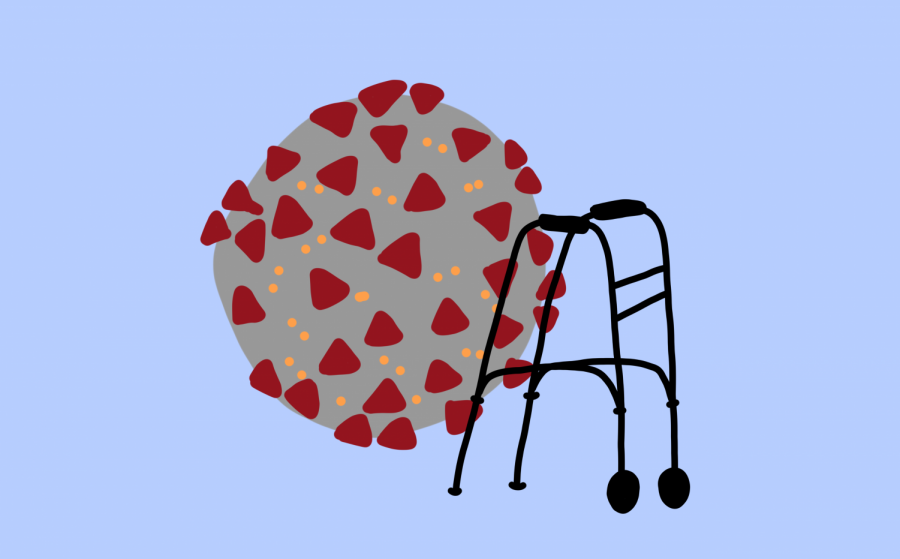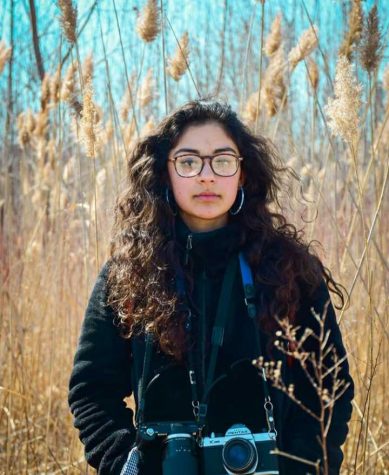Opinion | The COVID-19 pandemic prematurely aged us
June 22, 2021
The two-week waiting period after the second dose of the COVID-19 vaccine was over for both me and the people I live with on May 30. Those two weeks seemed like the longest of my life, and when they were over, I went out on the town to celebrate some sort of return to normalcy.
And by out on the town I mean my feet hurt from wearing heels for the first time in over a year, I had a sip of tequila and nearly died and I was home and more than ready to go to bed by 11 p.m.
Don’t get me wrong — it was probably the best time I’ve had since before the pandemic began — but I don’t think I can do that again for at least another three months. On the morning of May 31, I had a real conversation with myself. Did the pandemic prematurely age me? I went from someone able to stay up and out until after the sun came up to someone who prefers to be home at a normal time so I can watch HGTV before going to sleep in just a year.
And from there, the thoughts spiraled. Did the pandemic become an unavoidable waste of my youth? I’m supposed to be young and have fun, but if I stay awake past even midnight I get a headache the next morning, and I really value shoes with arches and actual cushioning. Can I still have fun in the four hours of space between my fall semester night class ending and the point of the night where I just pass out?
I am not alone. In a Zoom call with a few of my friends last week, they all mentioned the same phenomenon. We all went from what could be described as party animals their first year to people who really just like being home before dark. Pandemic life has stretched for nearly a year and a half now, and I fear about the transition back to the normal college life of partying, pulling all-nighters to study in Hillman, working late hours in-person and constantly having to interact with other people. We have gotten used to the slow passage of time, the loneliness and never going anywhere — the real question is whether or not we all want to go back to the lives we left before the pandemic and risk losing the new sense of comfort we gained by having no choice other than to stay inside on Friday and Saturday nights.
Feeling older after the pandemic may be due to stress. The high, prolonged stress levels we all experienced during the last 14 months have had a snowball effect on our physical and mental health, and therefore have aged us prematurely. That stress leads to unhealthy eating habits, lack of exercise, poor sleep schedules and more, all causing physical symptoms of aging such as achy joints and even white hairs.
And deep down I tell myself that those things aren’t so hard to reverse. A bit more exercise, a bit healthier lifestyle and a bit less stress and I’ll be good to go, as back to my old physical self as I can be. Mentally, why would I go back? Why would anyone? I wouldn’t want to erase all the lessons I’ve learned and introspection of the last year just to comfort my own insecurities of thinking I’m old.
It isn’t all bad. Or maybe that’s what I’m telling myself so I freak out less about having the mentality of a 35-year-old — no offense to 35-year-olds. I feel more mature after the pandemic, like I can confidently say that I have my priorities straight and I have much more of an idea of who I am as a person, what I need out of my life, my career and even a partner. I guess 14 months of very little social interaction allows for a whole lot of self-reflection.
For example, the pandemic and the loss of one of my two jobs has made me think more critically about my money choices, and what I want my money to actually be going towards. Do I need to be spending $50 a month on random things I find on Etsy or a slightly different shade of red lipstick? No. Would I rather save my money to use it to build an emergency fund, to travel or for concert tickets post-pandemic? Yes. Did I even really enjoy my job? Was it a good fit for me? Was it paying me enough?
It is the simple questions like these that I have never really taken the time to ponder or answer until the pandemic, and most other people hadn’t really considered either. As more and more unemployed people start to dip their toes back into the job market, I imagine them asking themselves all the same questions. After more than a year of trying to get comfortable in the midst of one of the most stressful times in most of our lives, we now have higher comfort standards for every aspect of our lives as we go back to what we used to consider “normal.”
You could even go as far to say that we as a society have gotten “wiser” and more compassionate. Walking around on campus is a whole new experience as conversations are stricken up with people you would otherwise never talk to. We went from a University of students that walked past each other on Fifth Avenue without saying a word to each other, to asking each other if you’re comfortable without a mask, if you’re vaccinated, if you need help finding a vaccine clinic and if you and your family are doing okay. In this case, it’s not all bad that we’ve all aged prematurely.
Dalia Maeroff writes primarily about issues of psychology, education, culture and environmentalism. Write to her at [email protected].




